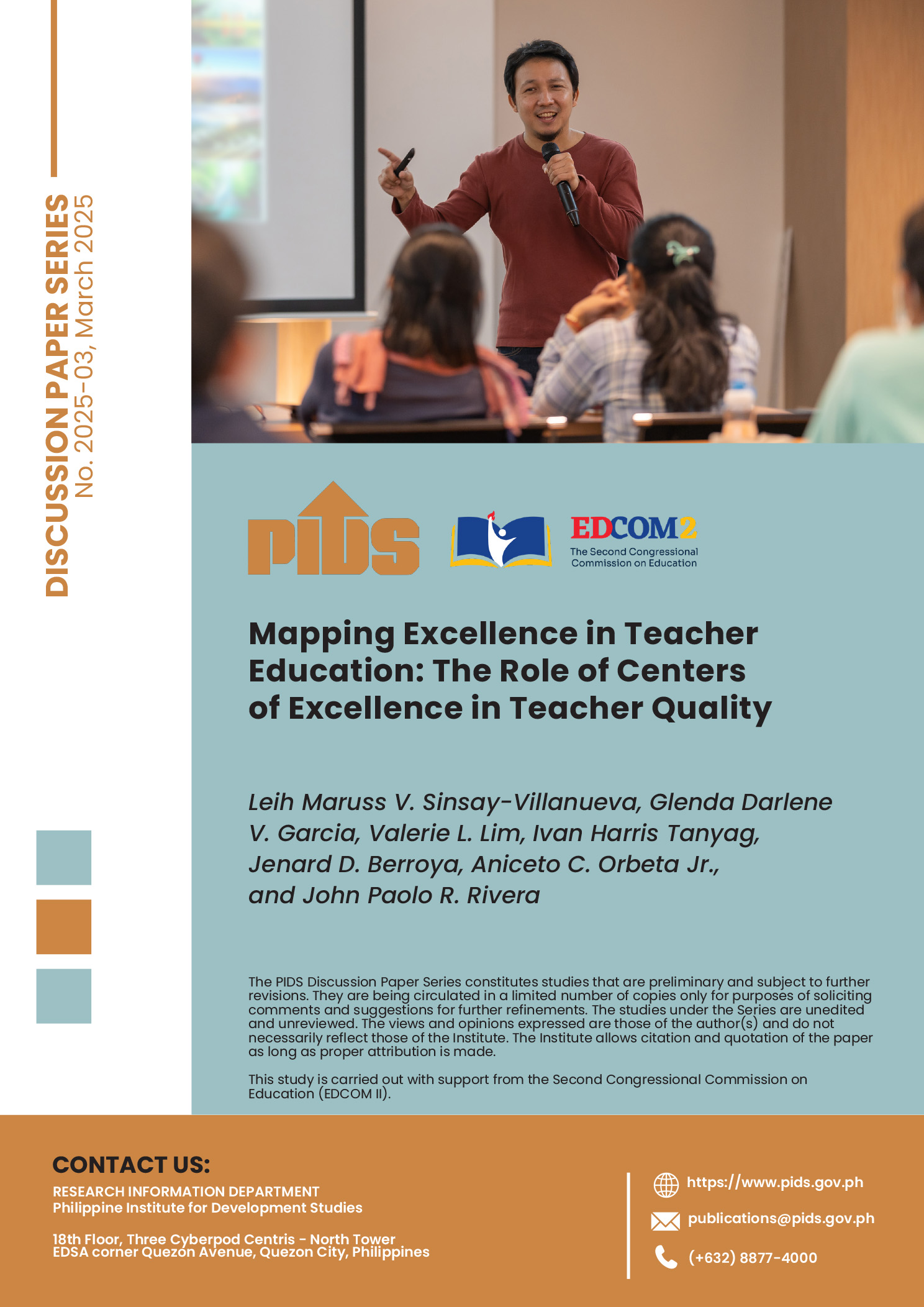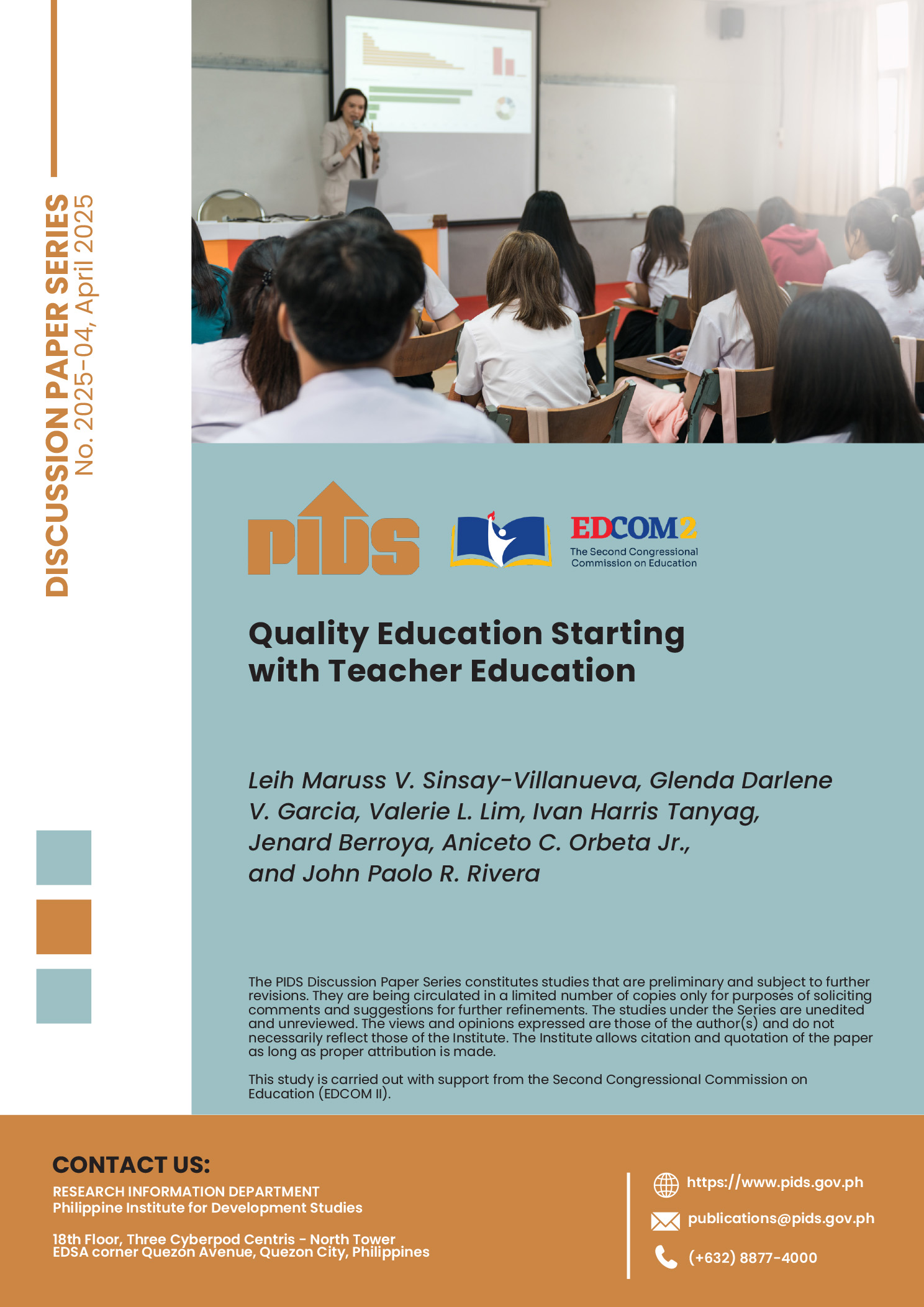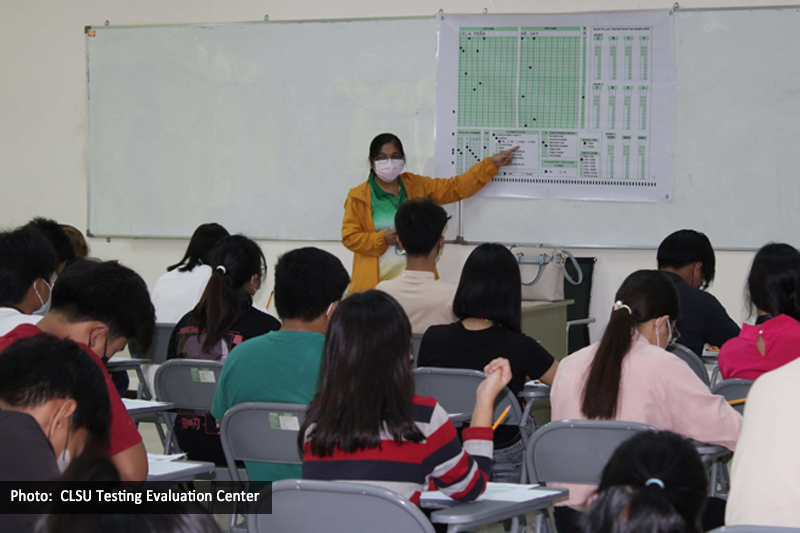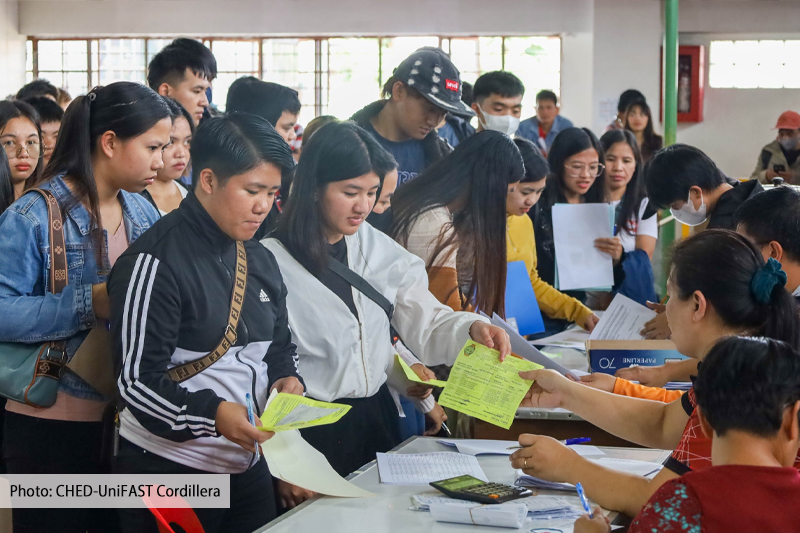Rody seems to have bit the bullet in signing the law on free tuition in public tertiary institutions against the advise of his economic managers due to massive funding needing to realize it.
A likely consequence of the law would be stretching the capacity for students of state universities and colleges as most Filipinos families, even the relatively well-off, seek to reduce college education expenses for their kids.
The law only mandates the government to offer free tuition and other fees such as library fees, ID fees and laboratory fees among others in state universities and colleges (SUCs).
Those who had the experience of sending a child through college know what the cost of education really means to a family.
During his tour among military camps, Rody promised that before his term ends, children of soldiers will have guaranteed education until college that will become reality not only for them but the whole nation as well.
The trickiest part of the deal, however, is finding the money for it. Budget Secretary Ben Diokno estimated P100 billion needed to be raised to fund the provisions of the bill.
The government has until next year when the first batch of government scholars are enrolled to look for the huge amount.
Rody defied the advice of his economic managers on the promise of the future as he believed that a well-developed tertiary education to Filipinos outweighs any short-term budget challenges.
If there’s a will, there’s a way,” Rody told his managers.
The Commission on Higher Education (ChED) said an initial amount of P16 billion may be needed to fund the mandatory provisions of the law.
A refinement of the law is, however, is needed particularly through its implementing rules as experts view that it may not even benefit those it targets to help.
The tuition subsidy may even benefit predominantly the well-off, economic managers and Philippine Institute of Development Studies (PIDS) fellows Dr. Aniceto Orbeta and Dr. Vicente Paqueo said.
Only a small proportion of the subsidy will benefit the poor, since only a small percentage (12 percent) of them make it to state colleges and universities (SUCs), according to the PIDS, which is a government think tank
There is also no evidence that making already highly-subsidized SUCs tuition-free will increase the overall tertiary enrollment rate, let alone the enrollment probability of poor children, it added.
Economic managers are banking on the United Student Financial Assistance System for Tertiary Education (UNIFAST) law that rationalizes and expands state-funded student financial assistance programs.
UNIFAST offers full financing (tuition, living allowance, and other expenses) for merit scholarships for the bright, grants-in-aid for the poor, and loans for everybody else.
The assistance is targeted, using indicators, and follows the students wherever they choose to study in public or private tertiary education institutions that meet certain quality standards.
Rody’s signing of the law was among the few times that he went against the views of his managers who he often says their advice take precedence on economic matters.
The combination of his reliable gut feel and his populist sentiment pushed his hand into signing the deal.
The signing of the immensely popular law should prod the Senate to complement Rody with the approval of the Tax Reform for Acceleration and Inclusion (Train) bill that is getting the runaround mainly due to its painful provisions such as the increase in the excise tax on fuel and automobile and the removal of most value added tax (VAT) exemptions.
The signing of the free tuition law was Rody’s way of pressuring senators to sign the Train bill since raising revenues is now incumbent on Congress.
A likely consequence of the law would be stretching the capacity for students of state universities and colleges as most Filipinos families, even the relatively well-off, seek to reduce college education expenses for their kids.
The law only mandates the government to offer free tuition and other fees such as library fees, ID fees and laboratory fees among others in state universities and colleges (SUCs).
Those who had the experience of sending a child through college know what the cost of education really means to a family.
During his tour among military camps, Rody promised that before his term ends, children of soldiers will have guaranteed education until college that will become reality not only for them but the whole nation as well.
The trickiest part of the deal, however, is finding the money for it. Budget Secretary Ben Diokno estimated P100 billion needed to be raised to fund the provisions of the bill.
The government has until next year when the first batch of government scholars are enrolled to look for the huge amount.
Rody defied the advice of his economic managers on the promise of the future as he believed that a well-developed tertiary education to Filipinos outweighs any short-term budget challenges.
If there’s a will, there’s a way,” Rody told his managers.
The Commission on Higher Education (ChED) said an initial amount of P16 billion may be needed to fund the mandatory provisions of the law.
A refinement of the law is, however, is needed particularly through its implementing rules as experts view that it may not even benefit those it targets to help.
The tuition subsidy may even benefit predominantly the well-off, economic managers and Philippine Institute of Development Studies (PIDS) fellows Dr. Aniceto Orbeta and Dr. Vicente Paqueo said.
Only a small proportion of the subsidy will benefit the poor, since only a small percentage (12 percent) of them make it to state colleges and universities (SUCs), according to the PIDS, which is a government think tank
There is also no evidence that making already highly-subsidized SUCs tuition-free will increase the overall tertiary enrollment rate, let alone the enrollment probability of poor children, it added.
Economic managers are banking on the United Student Financial Assistance System for Tertiary Education (UNIFAST) law that rationalizes and expands state-funded student financial assistance programs.
UNIFAST offers full financing (tuition, living allowance, and other expenses) for merit scholarships for the bright, grants-in-aid for the poor, and loans for everybody else.
The assistance is targeted, using indicators, and follows the students wherever they choose to study in public or private tertiary education institutions that meet certain quality standards.
Rody’s signing of the law was among the few times that he went against the views of his managers who he often says their advice take precedence on economic matters.
The combination of his reliable gut feel and his populist sentiment pushed his hand into signing the deal.
The signing of the immensely popular law should prod the Senate to complement Rody with the approval of the Tax Reform for Acceleration and Inclusion (Train) bill that is getting the runaround mainly due to its painful provisions such as the increase in the excise tax on fuel and automobile and the removal of most value added tax (VAT) exemptions.
The signing of the free tuition law was Rody’s way of pressuring senators to sign the Train bill since raising revenues is now incumbent on Congress.












